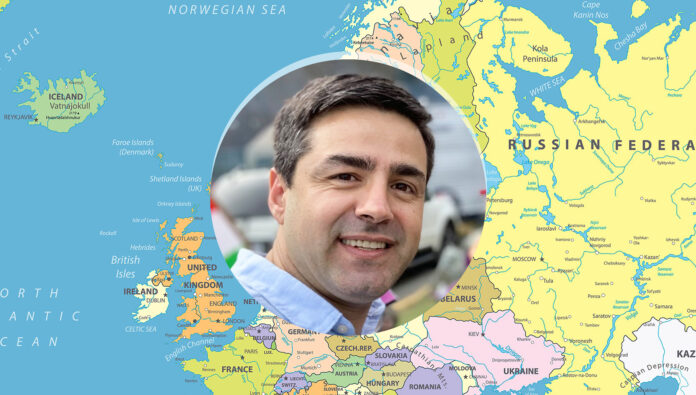Mem Husedin
Imagine two groups fighting in your neighborhood, and you’re watching from far away. None of the fighting parties are related to you, other than being in the same neighborhood.
But now, imagine you are someone whose farmland has been occupied by others from this neighborhood. This land, inherited from your ancestors, is taken over by two powerful neighbors in your area, who, with help from the police, occupy it and cultivate it as if it were their own. When you try to resist or speak out against this injustice, these powerful neighbors answer with violence, turning your life on your own land into misery.
So, here we are, watching two groups fighting over land. Each one claims it as their own. One side appears stronger and seems to be winning.
By now, you likely understand my allegory. It represents the conflict between Palestinian Arabs and Israelis over lands one side calls Palestine and the other, Israel. In this war, Israel seems to have the upper hand.
But why should this matter to us?
The Turks, Persians, and Arabs tell us not to develop any kind of ties with Israel. To them, Israel is the ultimate villain. But why is Israel so “bad”?
The Turks say it is because Israel occupies someone else’s land. Yet, where were these same voices when Turks came from Central Asia and seized the lands of Kurds, Armenians, Syriacs, and Greeks? Or when Persians took over lands belonging to the Baloch, Arabs, Kurds, and Azeris? Are these not occupations?
Today in Turkey, there are only negligible number of Armenians, Syriacs, or Greeks. The Turkish state made sure they did not remain on those lands, eliminating them in what can only be described as genocide. Persians may not have gone to the same lengths, but how can one ignore the ongoing occupation of Kurdish, Baloch, Azeri and Arab lands?
Why would Syrian Arabs have any legitimate claim over the lands of the Kurds or the Druze?
The reality is that Turkish, Persian, and Arab lecture against Kurdish relations with Israel or the West are less about “morality” and more about distracting from their own occupation of Kurdish lands.
Remember Saddam’s Anfal campaign and the chemical massacre of our people in Halabja. Remember Assad’s burning of 250 children under twelve in the Shehrazad Movie Theater. Recall the Zilan massacre of Kurdish women, children, and the elderly by the Turkish regime, or the mass killings of Kurds and Balloch by the Persian Shahs and Mullahs. How dare they lecture us on morality? How dare they speak of any moral high ground?
Today, there is a fight in our neighborhood. This fight does not directly involve us, but we know one side, the Palestinian Arabs, has historically sided with those who occupy and massacre our people. The other side, Israel, has at least shown some willingness to support the Kurdish cause for liberation.
So, do we need to take a side? I say no. We can urge both sides to put down their arms and find a peaceful solution to their conflict. That’s common sense. No one wins with violence, and we should never endorse it. As friends of peace, we advise both parties to seek a path forward without bloodshed.
However, we give this same advice to the Turks, Persians, and Arabs: they too must end their occupation of Kurdish lands and leave in peace. Until they leave Kurdistan and return to their own lands, they remain on the wrong side of history and morality, unqualified to lecture others on either.
For Kurds, our moral obligation is to our ancestors and our children. Our land is occupied. Imagine the farmland your family left you now occupied by these powerful neighbors. Would you abandon the cause for your land to involve yourself in others’ conflicts—especially when it has nothing to do with you?
Yet, Turks, Persians, and Arabs insist we ignore any potential relationships with Israel, all the while Turkey remains one of Israel’s main suppliers of oil and steel. How hypocritical is that?
Our duty is clear: to liberate our lands. Only this way we can honor our ancestors, and leave a proud future to our children.
We should stick to our own and remind those who lecture us of morality of the shame they carry.





